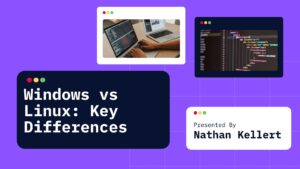So you’re getting ready for a machine learning engineer interview? Nice. First of all—breathe. It can feel like a lot, right? Algorithms, coding rounds, system design, probability questions… phew. But the good news? If you break it down and prep smart, you’re already ahead of most.
In this guide, we’ll talk about what to expect, the areas you should focus on, and how to practice so you walk in confident and come out with an offer.
Machine Learning Engineer Interview Prep
What Interviewers Are Looking For
Before diving into topics, let’s clear this up: companies aren’t just looking for a person who can build models. They want someone who can solve real-world problems using ML, write clean and efficient code, and collaborate well with cross-functional teams.
So your prep should reflect that—don’t just memorize formulas or practice Kaggle competitions. You gotta understand why something works and how to apply it in real business settings.
Core Topics You’ll Definitely Be Asked About
1. Machine Learning Concepts
You’ll get asked questions like:
- What’s the difference between supervised and unsupervised learning?
- How do you deal with overfitting?
- Explain precision, recall, and F1 score.
- What is bias-variance tradeoff? Make sure you’ve got a solid grip on regression, classification, clustering, decision trees, random forests, SVMs, and ensemble methods.
2. Model Evaluation & Metrics
You should know when to use ROC-AUC vs. accuracy, how to deal with imbalanced datasets, and what cross-validation means. Interviewers love testing how well you can assess a model’s performance beyond just accuracy.
3. Coding & Data Structures
Expect LeetCode-style questions in Python or whichever language you prefer. They usually test:
- Arrays and strings
- Hashmaps
- Binary trees
- Recursion
- Sorting and searching algorithms
If you’re rusty on these, sites like LeetCode and HackerRank can help a ton. Focus on writing clean, readable, and bug-free code.
4. Probability & Statistics
You don’t need to be a math professor, but basic stats are a must:
- Bayes Theorem
- Probability distributions (normal, binomial, Poisson)
- P-values and confidence intervals
- Central limit theorem This helps when you’re interpreting results or making decisions under uncertainty.
5. System Design (for ML)
Yes, there’s ML system design too—especially for mid to senior roles. You might get questions like:
- How would you design a real-time recommendation system?
- How do you handle model versioning?
- What’s your approach to deploying ML models at scale?
Brush up on concepts like batch vs streaming data, APIs for inference, and ML pipelines (Airflow, Kubeflow, etc.).
6. Deep Learning (Optional)
If the role involves deep learning, you’ll be expected to explain CNNs, RNNs, backpropagation, dropout, optimizers like Adam, etc. Also be ready to talk about popular frameworks like TensorFlow or PyTorch.
7. Projects & Past Work
Almost always, they’ll ask about your past ML projects. Be ready to explain:
- The problem you solved
- The dataset and features
- Algorithms used and why
- Results and tradeoffs
- What you learned
This is also your chance to shine—show your practical knowledge, communication skills, and decision-making.
How to Practice (Without Losing Your Mind)
- LeetCode for coding – Aim for easy to medium-level problems consistently.
- Mock interviews – Try them with friends or on platforms like Pramp or Interviewing.io.
- Brush up theory – Use your favorite ML books or online cheat sheets.
- Read blog posts – Especially for system design and real-world ML cases.
- Rehearse your stories – Think STAR method (Situation, Task, Action, Result) for behavioral questions.
A Few Tips to Keep in Mind
- Don’t fake it – If you don’t know something, be honest and try to reason through it.
- Show your thinking – Walk through your logic out loud. It helps interviewers see how you approach problems.
- Ask questions too – Interviews are a two-way street. Ask about their ML stack, team structure, challenges, etc.
- Stay calm under pressure – Sometimes they’ll throw in a tricky question just to see how you handle uncertainty.
Final Words
Interviewing for a machine learning engineer role can definitely feel intense. But with the right prep, you’ll go in with clarity and confidence. Focus on the core topics, stay curious, and don’t forget—you’re not just prepping to answer questions, you’re prepping to solve real-world problems.
You got this! 🚀







